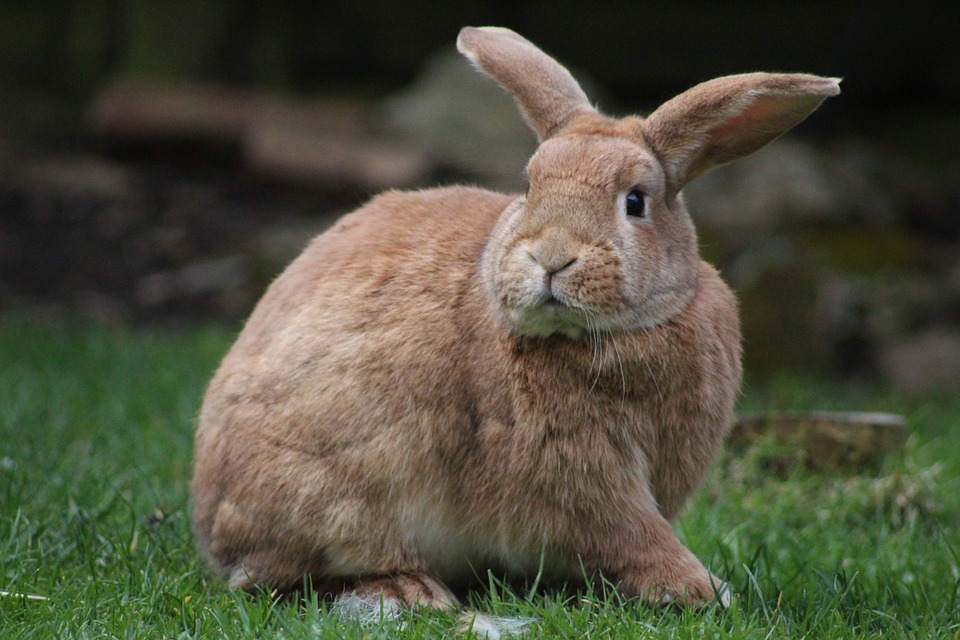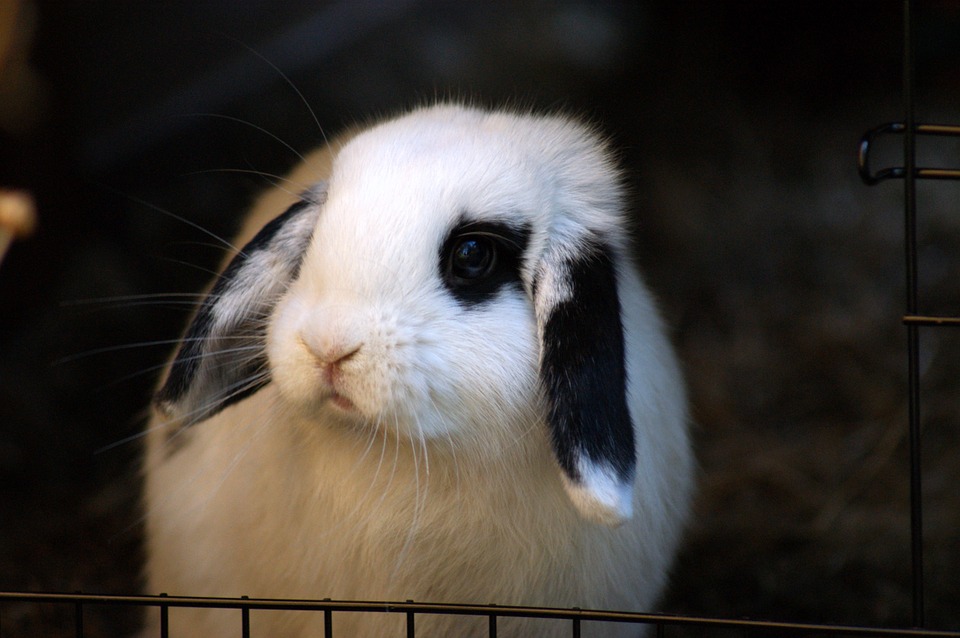This comprehensive guide explores the lifespan of rabbits as pets, providing valuable insights on how to ensure a long and healthy life for your furry companion. We'll delve into factors that influence longevity, including breed variations, environmental influences, diet and nutrition, veterinary care, and lifestyle choices. By understanding these factors, you can create an environment conducive to a happy and long-lasting bond with your rabbit.
Part 1: Understanding Rabbit Lifespan

1.1 Average Lifespan and Variability
The average lifespan of a domestic rabbit ranges from 5 to 10 years. However, this is just an average, and individual rabbits can live significantly longer or shorter depending on a variety of factors.
Factors influencing lifespan:
Breed: Certain breeds are predisposed to certain health conditions.
Genetics: Inheriting genes from parents can influence lifespan and susceptibility to diseases.
Environment: Housing, temperature, humidity, and safety all play a role.
Diet and Nutrition: A balanced diet of hay, fresh vegetables, and limited treats is crucial.
Veterinary Care: Regular check-ups, vaccinations, and dental care are essential.
Lifestyle: Exercise, socialization, and stress reduction all contribute to longevity.
1.2 Breed Variations in Lifespan
Rabbit breeds vary significantly in their typical lifespan, largely due to genetic predispositions and size.
Dwarf Breeds: These breeds, such as the Dutch, Netherland Dwarf, and Lionhead, typically have shorter lifespans of around 5-7 years. They are more prone to certain health issues related to their smaller size, like dental problems and bone fragility.
Large Breeds: Breeds like the Flemish Giant, French Lop, and English Angora generally have a longer lifespan, averaging 8-10 years or even longer with proper care. However, their larger size can make them more susceptible to certain health conditions like obesity and joint problems.
Giant Breeds: These breeds, including the Continental Giant and the German Giant, often have a shorter lifespan than other breeds due to their size and increased susceptibility to health issues. They require meticulous care and attention to their specific needs.
Part 2: Environmental Factors and Lifespan

2.1 Housing: Space and Security
The environment you provide for your rabbit plays a crucial role in their lifespan. Adequate space, a safe environment, and appropriate temperature and humidity are crucial.
Spacious Housing: A minimum of 4 square feet of floor space per rabbit is recommended, with additional space for play areas. Cramped conditions can lead to stress, inactivity, and obesity.
Secure Environment: Ensure the housing is escape-proof and free from hazards like electrical cords, poisonous plants, and sharp objects. Predators, both domestic and wild, should be kept away from your rabbit's living space.
Temperature and Humidity: Rabbits are sensitive to extreme temperatures and humidity. Ideal temperatures range between 60-75 degrees Fahrenheit (15-24 degrees Celsius). Avoid drafts, direct sunlight, and excessive heat.
Hygiene: Maintain a clean and hygienic environment to prevent the spread of bacteria, parasites, and other health hazards. Regularly clean and disinfect your rabbit's housing, food and water bowls, and litter box.
2.2 The Importance of Exercise and Play
Physical activity is essential for a rabbit's overall health and longevity. Regular exercise helps them maintain a healthy weight, strengthens muscles, and promotes mental stimulation.
Daily Exercise: Provide a dedicated play area where your rabbit can jump, hop, and explore.
Enrichment Toys: Offer a variety of toys, including chew toys, tunnels, and cardboard boxes, to keep them engaged and entertained.
Socialization: Companionship with other rabbits, if possible, can contribute to a positive mental state and reduced stress.
Part 3: Diet and Nutrition
3.1 The Importance of Hay
Hay forms the cornerstone of a healthy rabbit diet, providing essential fiber for proper digestion and dental health.
High-Quality Hay: Timothy hay is a good choice for adult rabbits, offering a balanced source of nutrients. Alfalfa hay is suitable for growing rabbits and pregnant or lactating females due to its higher calorie content.
Unlimited Access: Provide a constant supply of hay for your rabbit to graze on throughout the day.
Variety: Offer a variety of hay types to encourage consumption and provide different nutritional benefits.
3.2 Fresh Vegetables: Essential Nutrients
Fresh vegetables provide essential vitamins, minerals, and antioxidants, contributing to your rabbit's overall health.
Leafy Greens: Offer a variety of leafy greens, including romaine lettuce, kale, spinach, cilantro, and parsley.
Other Vegetables: Include a mix of other vegetables, like carrots, broccoli, bell peppers, and zucchini.
Moderation: Vegetables should be offered in moderation as a supplement to hay.
Variety: Introduce new vegetables gradually to ensure your rabbit can tolerate them.
3.3 Limited Treats
Treats should be given sparingly as they are high in calories and can lead to weight gain and dietary imbalances.
Healthy Treats: Offer small amounts of fresh fruit (in moderation), herbs (like basil, mint, and cilantro), or commercially available rabbit treats designed for nutritional value.
Avoid Sugary Treats: Avoid sugary treats, chocolate, and processed foods, as they can be harmful to rabbits.
Part 4: Veterinary Care: Preventative Measures
4.1 Routine Check-Ups: Early Detection of Health Issues
Regular veterinary check-ups are essential for ensuring your rabbit's optimal health and detecting potential problems early.
Frequency: Schedule annual check-ups, and more frequent visits for senior rabbits or those with specific health concerns.
Comprehensive Examination: During check-ups, the veterinarian will perform a thorough physical examination, check for dental issues, and assess your rabbit's overall health.
Vaccinations: Rabbits should be vaccinated against common diseases like Rabbit Haemorrhagic Disease (RHD) and Myxomatosis.
4.2 Dental Care
Rabbits' teeth continuously grow, requiring regular dental check-ups to prevent overgrown teeth.
Overgrown Teeth: Overgrown teeth can cause pain, difficulty eating, weight loss, and ultimately, health complications.
Professional Dental Care: Schedule professional dental cleanings as recommended by your veterinarian.
Home Dental Care: Encourage chewing on hay and provide appropriate chew toys to help keep their teeth trimmed.
4.3 Common Health Concerns
Rabbits are susceptible to various health problems that can affect their lifespan.
Dental Problems: Overgrown teeth, abscesses, and other dental issues are common in rabbits.
Gastrointestinal Issues: Stasis (slowed gut motility) and bloat are common, particularly in rabbits that are stressed or have a poor diet.
Respiratory Infections: Rabbits can contract respiratory infections, especially in cold and damp environments.
Parasites: Parasites can cause various health issues, including digestive problems, weight loss, and weakness.
Cancer: Cancer is a common health concern in older rabbits.
Part 5: Understanding Senior Rabbit Care
5.1 Signs of Aging in Rabbits
As rabbits age, they may experience various changes that indicate they are entering their senior years.
Reduced Activity: They may become less energetic and sleep more frequently.
Decreased Appetite: They may eat less, especially hay.
Weight Loss: They may become thinner due to decreased appetite or digestive issues.
Dental Problems: They may have trouble eating due to overgrown teeth.
Coat Changes: Their coat may become duller or thinner.
Sensory Impairment: They may experience reduced eyesight or hearing.
5.2 Providing Extra Care for Senior Rabbits
Providing extra care for your elderly rabbit can significantly improve their quality of life.
High-Calorie Diet: Offer a high-quality diet with additional calories to compensate for decreased appetite.
Soft Food: Provide softened hay or commercial rabbit food for easier eating.
Comfortable Bedding: Ensure a soft and comfortable bedding to support their joints and provide warmth.
Regular Veterinary Check-Ups: Schedule more frequent check-ups to monitor their health and address any issues promptly.
Love and Attention: Show extra love and attention, providing comfort and companionship.
Part 6: FAQs
6.1 How can I prevent my rabbit from getting old?
While you can't prevent aging, you can significantly influence your rabbit's lifespan by providing a healthy diet, regular veterinary care, a safe and stimulating environment, and lots of love.
6.2 What are some common misconceptions about rabbit lifespan?
All rabbits live for 5 years: While 5 years is a common average, some rabbits live much longer with proper care.
Smaller rabbits live longer: Dwarf breeds typically have shorter lifespans than larger breeds.
Neutering shortens lifespan: Neutering actually promotes longer lifespans by reducing the risk of certain cancers.
Rabbits are low-maintenance pets: Rabbits require proper diet, veterinary care, and enrichment to thrive.
6.3 How do I know when it's time to say goodbye?
Deciding when to say goodbye to your beloved rabbit is a difficult decision, and there's no easy answer. Consider these signs:
Severe Pain or Suffering: If your rabbit is experiencing significant pain or suffering, it may be time to consider euthanasia.
Loss of Appetite: If your rabbit refuses to eat or drink, it may indicate a serious health issue.
Weakness and Lethargy: If your rabbit is extremely weak and lethargic, it may be a sign of a serious illness.
Difficulty Breathing: Laboured breathing can be a sign of a respiratory problem or other serious health issue.
Remember, understanding the factors that influence your rabbit's lifespan and providing the best possible care will help them enjoy a long and fulfilling life.
Everyone is watching
-

Do Rabbits Lay Eggs? (The Surprising Truth)
OTHER TYPES OF PETSThis article will unravel the common misconception that rabbits lay eggs, exploring the fascinating world of r...
-

What's a Group of Rabbits Called? (A Comprehensive Guide)
OTHER TYPES OF PETSThis article delves into the fascinating world of rabbits, exploring the various terms used to describe a grou...
-

Can Rabbits Eat Grapes? A Guide to Safe Rabbit Treats
OTHER TYPES OF PETSThis comprehensive guide will explore the safety and suitability of grapes for rabbits, providing detailed inf...
-

Predators That Hunt Rabbits: A Guide to Natural Enemies
OTHER TYPES OF PETSI've always been fascinated by the circle of life, that delicate dance between predator and prey. Growing up ...
-

Are Rabbits Nocturnal Animals?
OTHER TYPES OF PETSThe question of whether rabbits are nocturnal animals is a fascinating one, with a surprisingly complex answer...
